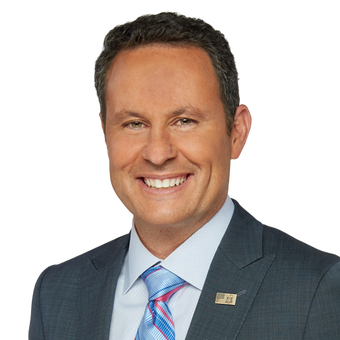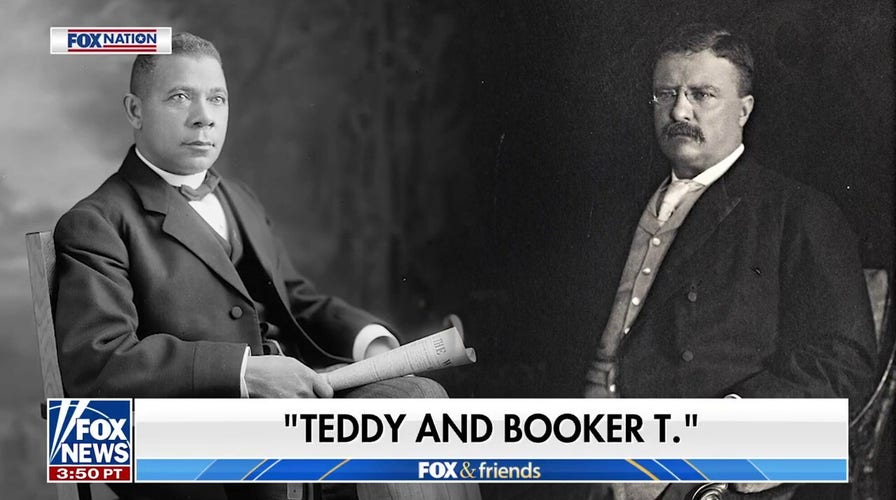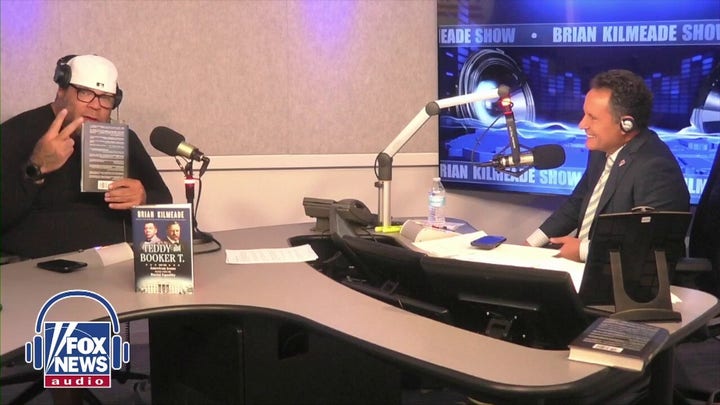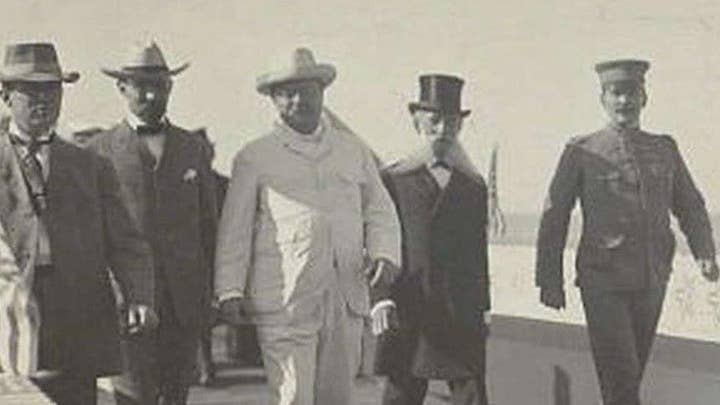Teddy Roosevelt and Booker T. Washington can teach today's Americans how to overcome adversity
We are a better nation because Teddy Roosevelt and Booker T. Washington chose to fight
Brian Kilmeade debuts new book Teddy and Booker T.
‘FOX & Friends’ co-host shares the story of how Theodore Roosevelt and Booker T. Washington worked together to bring the United States to greater racial equality in a new FOX Nation special.
PROGRAMMING ALERT: On Saturday, December 23, watch "Teddy & Booker T" at 9 pm ET and 2 am ET. Hosted by anchor and author Brian Kilmeade tells the story of how President Theodore Roosevelt and Booker T. Washington faced the challenge of keeping America moving toward the promise of the Emancipation Proclamation.
Too many Americans have forgotten how to be tough. Too many are just giving up. They’re "quiet quitting" their jobs, and even their marriages. The youngest generation in the workforce claims to be "completely overwhelmed" by daily life.
It’s true that we’re facing significant challenges at home and abroad today. But in America’s long history, that’s nothing new. Our greatest leaders were molded into towering figures because of – not in spite of – the challenges they faced.
At the dawn of the 20th century, two such men were Theodore Roosevelt and Booker T. Washington. One of these men had to overcome the evils of slavery, and fought for the rest of his life against evil institutional racism. The other was born into privilege, but forced himself to conquer the fragile health that plagued him in youth.

Booker T. Washington and Teddy Roosevelt (Sentinel)
They both went on to become prominent men of their day, and when the president and the civil rights leader came together, they worked hard to make the new century a fairer and more equitable one for all Americans.
HOW ICONS TEDDY ROOSEVELT AND BOOKER T. WASHINGTON BLAZED A PATH FOR RACIAL EQUALITY
Booker T. Washington’s first home was a one-room log cabin. Meals were "a piece of bread here and a scrap of meat there." He wore no shoes until he was 8. Brutalizing punishment was a fact of life.
And he could forget about education. "Learning from books in a schoolroom," his mother explained, "[is] forbidden to a Negro child." He was told reading was "dangerous," but that only upped his curiosity.
"From that moment I resolved that I should never be satisfied until I learned what this dangerous practice was like."
At the age of 16, he walked all the way to the Hampton Normal and Agricultural Institute. His teachers there were impressed by his work ethic, with one, Nathalie Lord, remarking: "I think I may safely say he was never idle."
It soon became clear that Booker wasn’t just interested in acquiring knowledge for his own sake. "To help his people," Miss Lord learned, "was foremost in his mind."
TEDDY ROOSEVELT'S MODEL TO COMBAT COMMUNIST CHINA
And help he did. After spending several years teaching, in 1881 he became the head of the brand-new Tuskegee Institute in Alabama, a training school for Black educators. First, though, he had to build the campus.
Washington and his students took on the hard work of clearing dozens of acres. One of his colleagues later wrote: "They couldn’t say they were too good for that kind of work when Mr. Washington himself was at it harder than any of them."
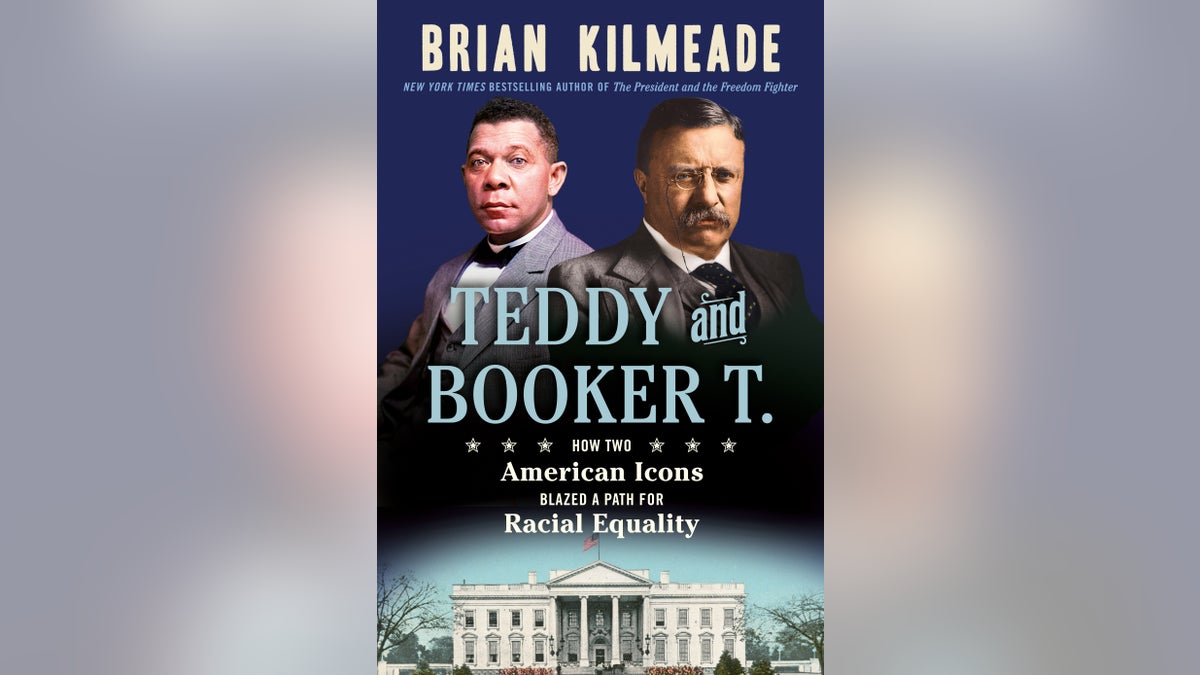
The Tuskegee Institute grew into the base from which Washington launched a national movement to improve the lives of Black Americans. By 1901, Washington was such a major voice in the national conversation that he became the first Black person to dine at the White House – at the invitation of President Theodore Roosevelt.
Roosevelt’s privileged circumstances could hardly have been more different from Washington’s, but he too faced early challenges that made him into the man he was. Colds, stomach upsets and fevers affected him in early childhood. At age 3, he developed asthma, soon followed by acute bouts of diarrhea and vomiting.
Theodore was 14 and had suffered years of sickness when his father sat him down for a man-to-man conversation about his health. "You have the mind, but you have not the body," his father said. "Without the help of the body the mind cannot go as far as it should."
But the boy was ready to rise to the challenge. "I’ll make my body," he promised.
He started training by lifting weights, wrestling and boxing lessons. Theodore persisted and, as one of his sisters observed, he "widen[ed] his chest by regular, monotonous motion – drudgery indeed."
He worked his mind, too, reading voraciously, his tastes varying from boys’ fiction to travel books and works on zoology and natural history. Over years of hard work, he turned into the man who would enter New York state politics in 1886, kicking off the true start of a brilliant career that saw him in the White House by 1901.
CLICK HERE FOR MORE FOX NEWS OPINION
On Oct. 16 of that year, he invited Booker T. Washington to dinner. Roosevelt had been in office for barely a month. His predecessor William McKinley had been assassinated, and it was now up to Roosevelt to lead a country that was split by racial divisions and tensions despite the end of the Civil War decades earlier.

William McKinley (1843-1901) was the 25th president of the United States, serving from March 4, 1897, until his assassination in September 1901, six months into his second term. (Universal History Archive/Universal Images Group via Getty Images)
One fateful meal brought together two men whose lives, though very different, had been shaped by similar commitment to overcoming adversity. As Washington fought for equal rights, Roosevelt, bolstered by Washington’s encouragement, fought to appoint Black Americans (and fair-minded Whites) to government positions, becoming personally involved in many cases.
He closed a local post office in Mississippi after they unfairly dismissed their Black postmistress. He faced wailing denunciations from the press and political opposition, but Booker T. Washington had his back.
CLICK HERE TO GET THE FOX NEWS APP
Both Booker T. and Teddy had vision. They had drive. And their skins were tough enough that they drove forward even in the face of often vicious criticism.
We are a better nation because they chose to fight. Both of those men would have no time for "quiet quitters." They would not be "overwhelmed" by daily life. Nothing would stop them from fighting for what’s right. That’s a legacy we can all look up to.
Brian Kilmeade is the co-host of FOX News Channel's (FNC) FOX & Friends (weekdays 6-9 AM/ET) alongside Steve Doocy and Ainsley Earhardt and the host of One Nation with Brian Kilmeade (Saturdays 8-9 PM/ET).
